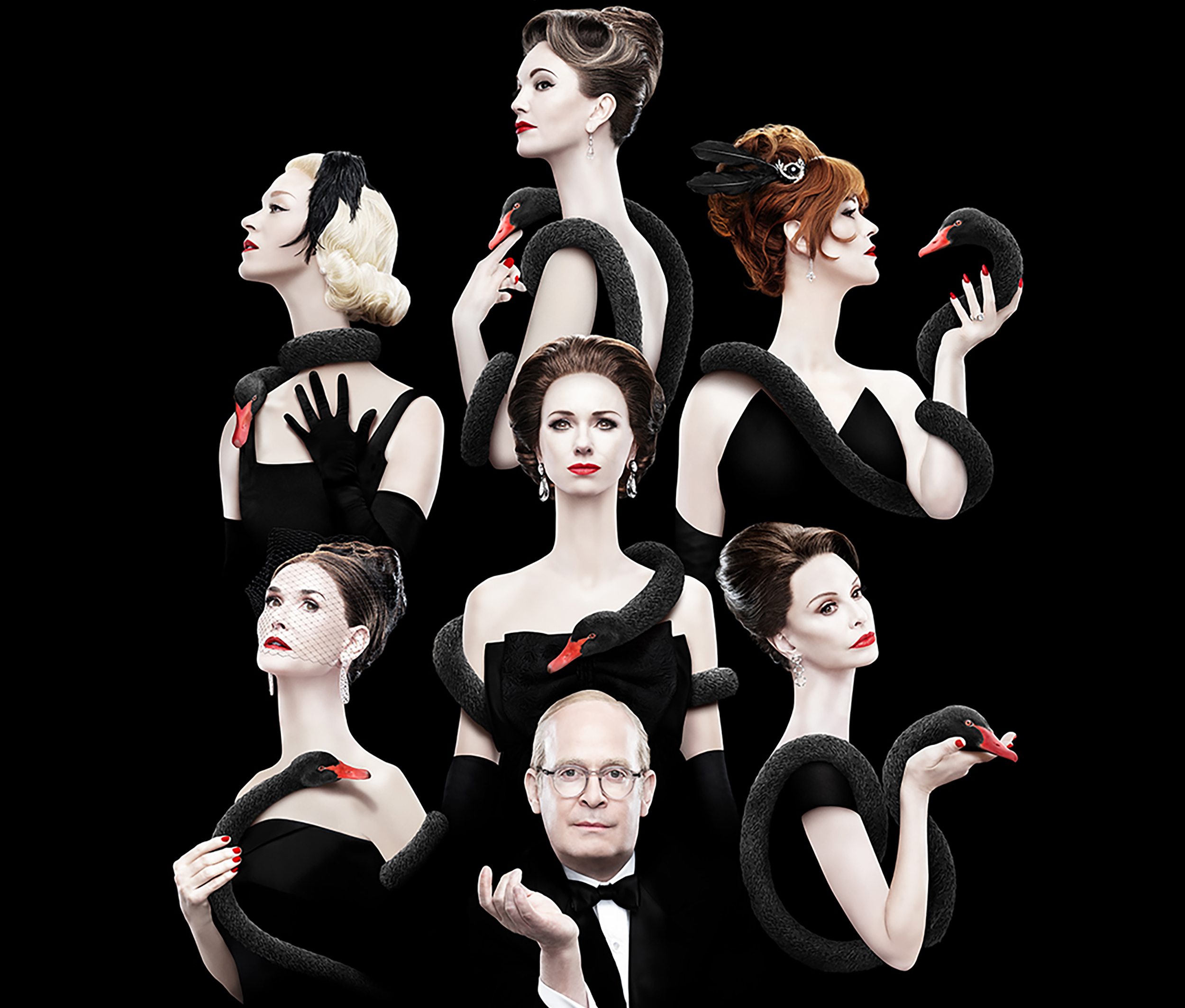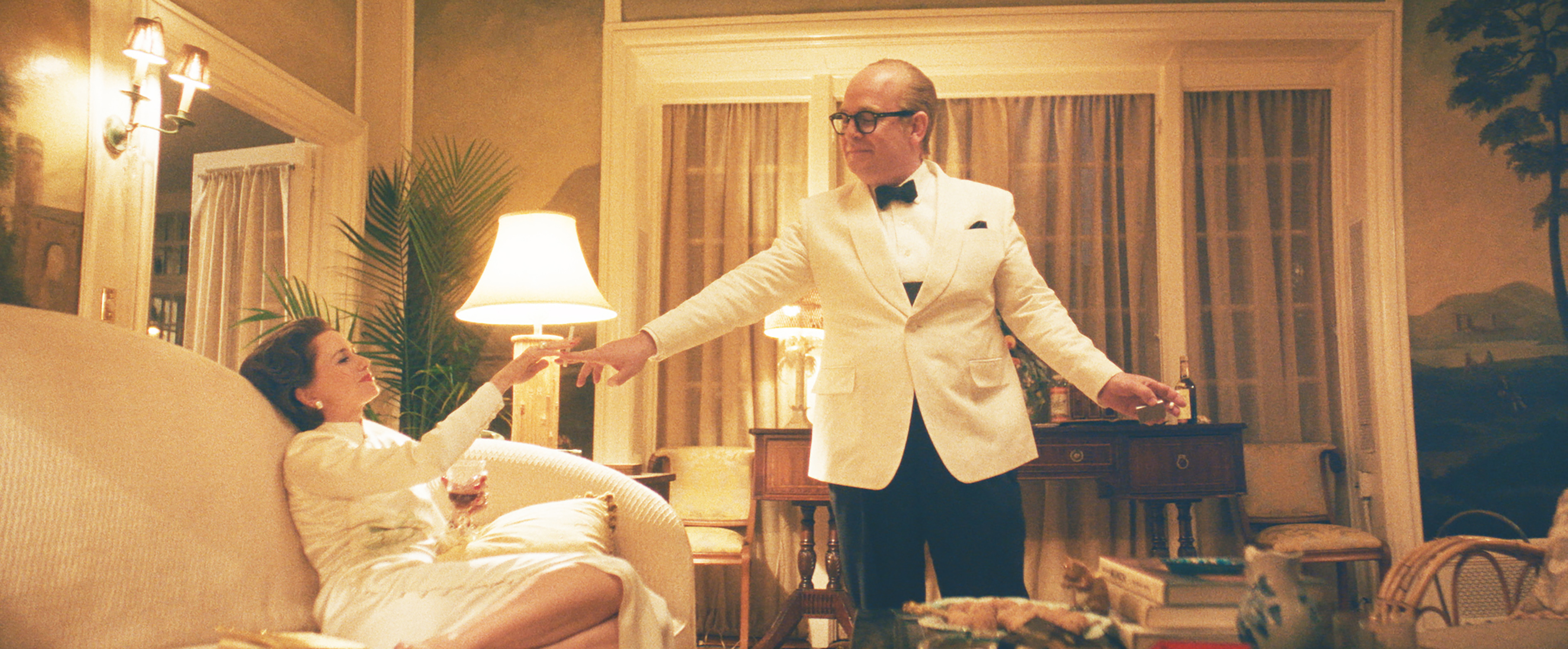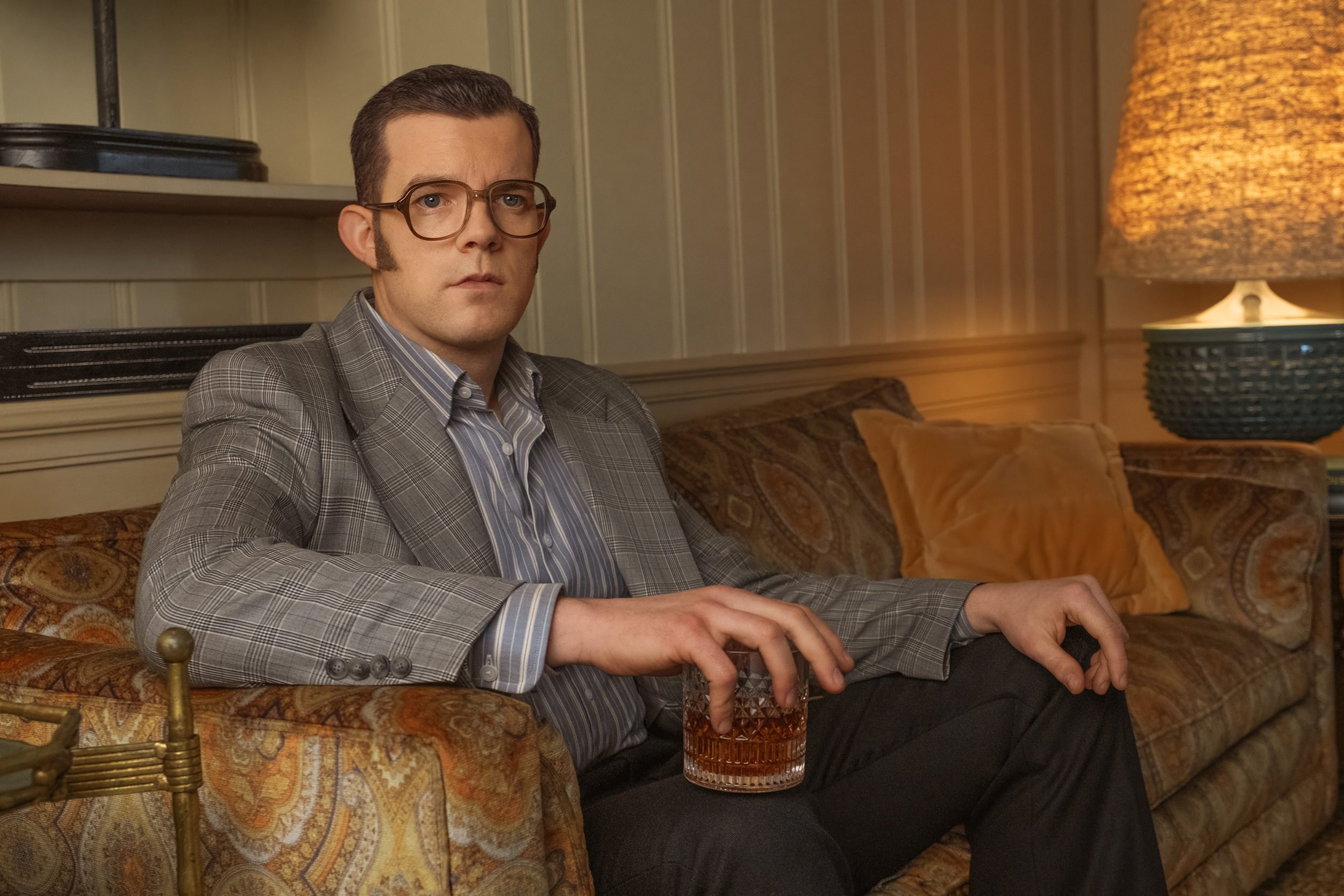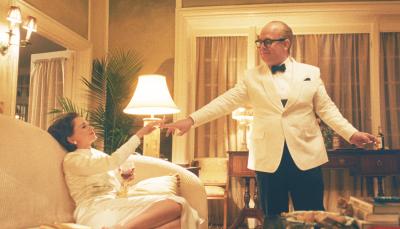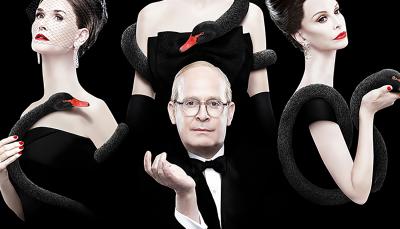'Feud: Capote vs. The Swans': Tom Hollander Shines in a Different Kind of Horror Story
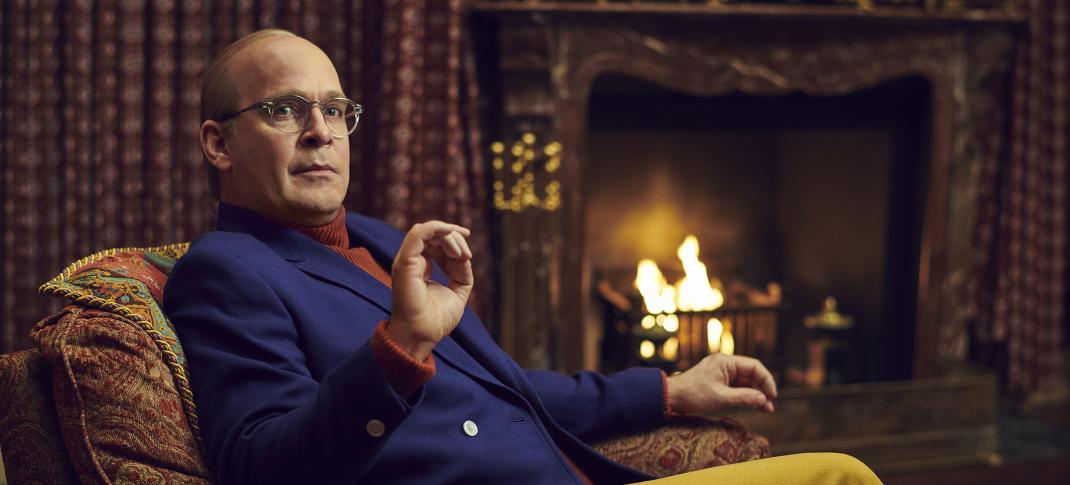
Tom Hollander as Truman Capote in the portrait art for Feud: Capote vs. The Swans
FX
“Never let the truth get in the way of a good story.” Truman Capote (Tom Hollander) quotes this famous line when confronted about exposing the secrets of his high society New York friends, the titular Swans of FX’s Feud: Capote vs. The Swans. This is the second season of the Ryan Murphy series following the original run of Feud: Bette vs. Joan in 2017. Although the acting is superb, and the show is often moving, the second season fails to tell a cohesive story. It aims for but doesn’t quite reach the heights of past Murphy offerings.
The show doesn’t look like other Murphy productions – it lacks the characteristic crispness of American Horror Story, The Politician, and even Feud’s own first season. The color scheme is drab and washed out, with an abundance of sepia tones and scenes drenched in yellow light. Are we supposed to infer that high society is not so glamorous, though Capote loves it so? Even the food the Swans eat at their favorite restaurant doesn’t look appetizing. The fashion is forgettable, disappointing for a show so steeped in the idea of presentation. Although Zac Posen is prominently credited with designing the gowns for the Black and White Ball sequence, they’re not that memorable.
Feud supposes you already know the basics about Truman Capote, the eccentric, influential gay writer of In Cold Blood with a famously odd, childlike voice. It goes on to showcase Capote as a deeply flawed person, one that’s often hard to like. Tom Hollander disappears into the character, delivering a stunning portrayal of Capote. Despite the missteps of this show, his acting alone is worth the price of admission.
Hollander’s impression of Capote’s signature voice is actually toned down from reality, and his mannerisms are distinct and memorable. And although Capote is shown to be petty, vindictive, and prone to acerbic verbal provocation, Hollander delivers a humanity and heart that pulls the audience in. You might be surprised to find yourself shedding tears.
The show blunders by starting the story too far ahead, beginning in 1984, jumping back to 1968, then 1955, and finally forward again to 1975. Although we do see the origin of Capote meeting the head Swan, Babe Paley (Naomi Watts), and being inducted into her exclusive circle, when we are thrust into 1975 with Capote and his cadre of Swans, it seems we’re already supposed to understand the depth of their relationship and the ensuing devastation of being expelled from their society. The social ejection is offered up as high drama without properly building the stakes.
Four ladies make up the group of Capote nicknamed the Swans: Babe Paley, Slim Keith (Diane Lane), C.Z. Guest (Chloë Sevigny), and, in an inexplicable choice, Lee Radziwill (Calista Flockhart), who is not introduced until the second episode. Capote’s real-life friendship with these four women allowed him access to their private lives; a trusted confidant who betrayed them by including their personal scandals in an unfinished novel, Answered Prayers, an excerpt of which was published in Esquire magazine in 1975.
These ladies are rich, posh, and insular; having their secrets splayed for all to read was mortifying. It is implied they run New York, but we rarely see them in a setting outside of La Cote Basque, the upscale restaurant where they lunch and gossip. This might be intentional since Capote is our protagonist, and the story explores his perceptions, but it feels like a miscalculation to never see them outside of lunch.
Capote seems to have no concept that he’s done anything wrong. He desperately wants back into the circle and Babe’s forgiveness but appears to have no shame nor understanding about the betrayal he perpetrated. Although the Swans are often portrayed as cold, bored women grasping at the power available to them, the show also goes out of its way to develop and sympathize with Babe. Watts is a marvel, giving her character complexity and poignancy. In some ways, the show is as much about Babe as about Capote.
When we focus on Capote, it is often in the throes of self-destructive behavior: excessive drinking and pills, seducing straight men, hallucinating his dead mother (played to perfection by Murphy regular Jessica Lange), and being waylaid by writer’s block. In his later years, he becomes something of a spectacle on talk shows, frequently showing up drunk and incoherent. His relationships with men, including his long-suffering partner Jack Dunphy (Joe Mantello), are dysfunctional and sometimes violent, as with his lover John O’Shea (Russell Tovey).
This second season of Feud is horror in its own way with Capote’s alcoholism, addiction to pills, addiction to John, and his slow and painful public decline. The show longs for a different era; of glamour, posturing, and status. It also misses the days of smoking anywhere and everywhere: these characters smoke like chimneys, especially the women. Babe, who’s dying of cancer, smokes unceasingly.
But, like smoke, the show’s eight episodes are thin and suffer from weak storytelling. Scenes are too often presented without build-up or context, leaving the audience confused and disengaged. This is especially true of its use of time shifting, which quickly gets confusing: one moment, Capote is pouring all his liquor down the toilet and declaring sobriety, and the next scene, he is eyeballs-deep in a bender years later (or sometimes years earlier).
Putting aside that addiction is often cyclical, this ricocheting narrative style is unpleasant and disjointed. It’s a shame that the storytelling undercuts an outstanding performance set by literally the entire cast. Feud: Capote vs. The Swans delivers on the acting, and it is worth wading through the show’s weaker moments to enjoy the troupe’s portrayals. Come for the Capote impression; stay for the Swans.
Feud: Capote vs. The Swans premieres on FX on Wednesday, January 31, 2024, with two episodes at 10 p.m. ET and stream on Hulu the next day, with one episode a week every Wednesday/Thursday to follow.

